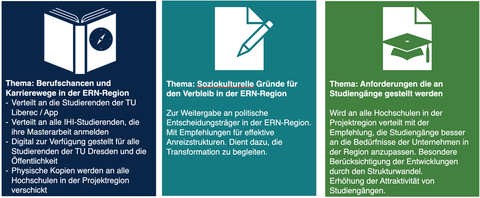IHI-Chair for International Management and Faculty of Economics at TU Liberec Receive EU Funding for the ERNILAC Project
In recent months, the Chair of International Management at IHI Zittau, in cooperation with the Faculty of Business Administration and Economics at TU Liberec, has designed a project that aims to increase the attractiveness of the labor market for students in the Neisse Euroregion through applied research and educational offers based on this research. This project is called ERNILAC - Euroregion Neisse International Labor Market for Academics.
After the project underwent an intensive examination by the Sächsische Aufbaubank and was ultimately deemed worthy of funding, it was approved with a total volume of around half a million euros. The project is being subsidized with € 378,768.19 from the European Union's European Territorial Cooperation Fund (Interreg).
ERNILAC offers an excellent opportunity to support the joint International Management degree program with TU Liberec with stronger research cooperation and to deepen European cooperation between IHI Zittau and TU Liberec.
Over the next two years, a wide range of opportunities will be created for students at IHI Zittau, TU Liberec and other regional higher education institutions to get to know the German-Czech labor market better and to intensify the exchange between students. These activities are accompanied by a comprehensive analysis in which qualitative and quantitative studies are carried out among companies, universities and students. The aim is to identify new career paths for academics, promote intercultural exchange between students, better understand the regional labor market, bring potential applicants into contact with employers and accompany regional structural change by increasing the visibility of local employers and thus opening up new potential applicant groups. ERNILAC is intended to positively support European labor market integration in the region.
Among other things, the project will result in a "career compass", which will be available in digital and printed form to all university graduates in the Neisse Euroregion. It will contain success stories of graduates with cross-border career paths, interesting job profiles of companies in the region, information on requirements for cross-border careers and information on career opportunities for graduates in the region.
In addition, a white paper for regional policy is to be developed to counteract the migration of highly qualified graduates.
The project will be completed by an analysis of the range of courses on offer in the German-Czech Euro-Neisse region with regard to the match between the qualifications required in the region and the skills provided by higher education.


